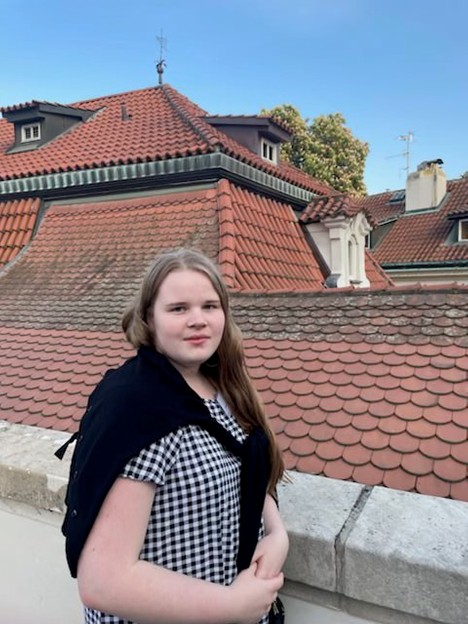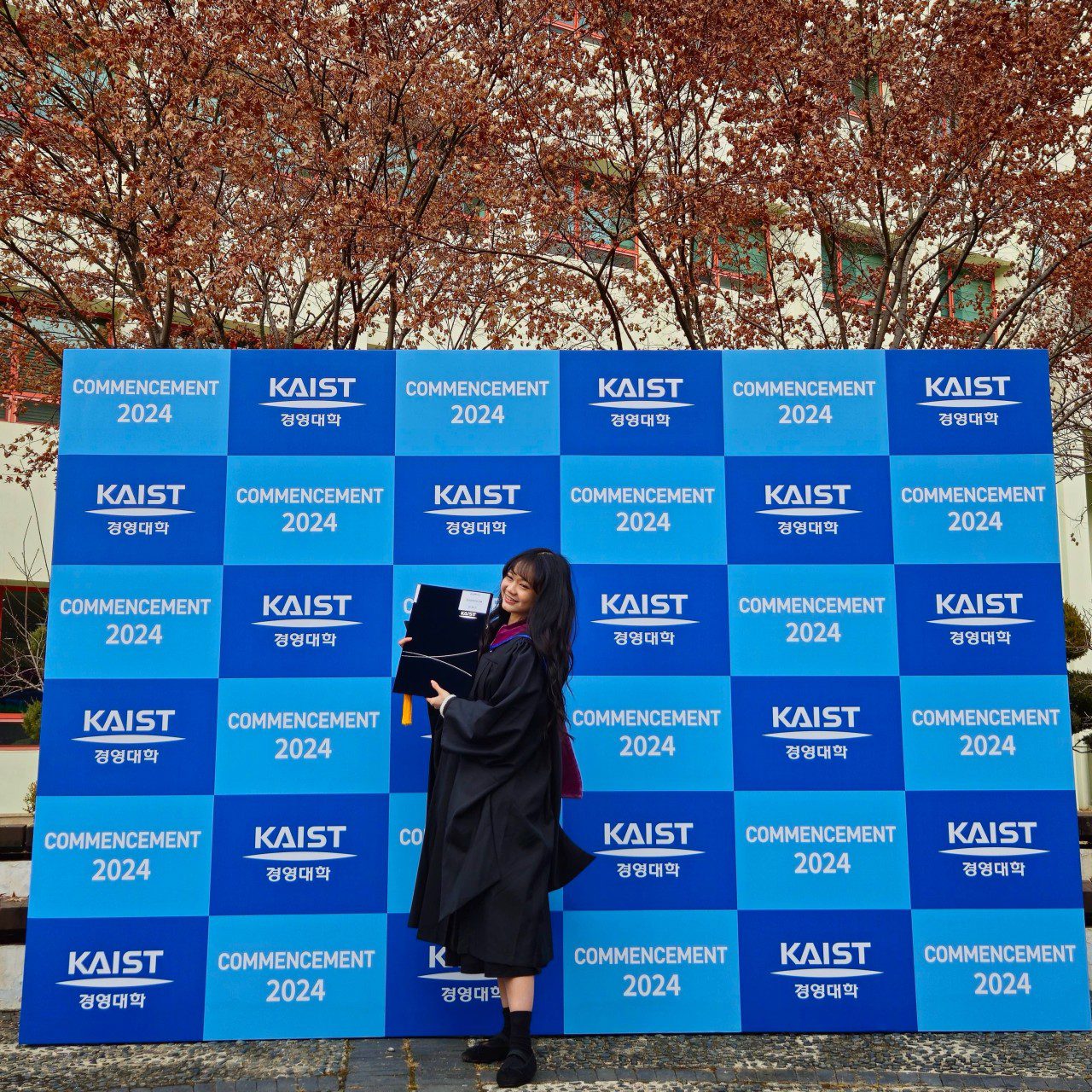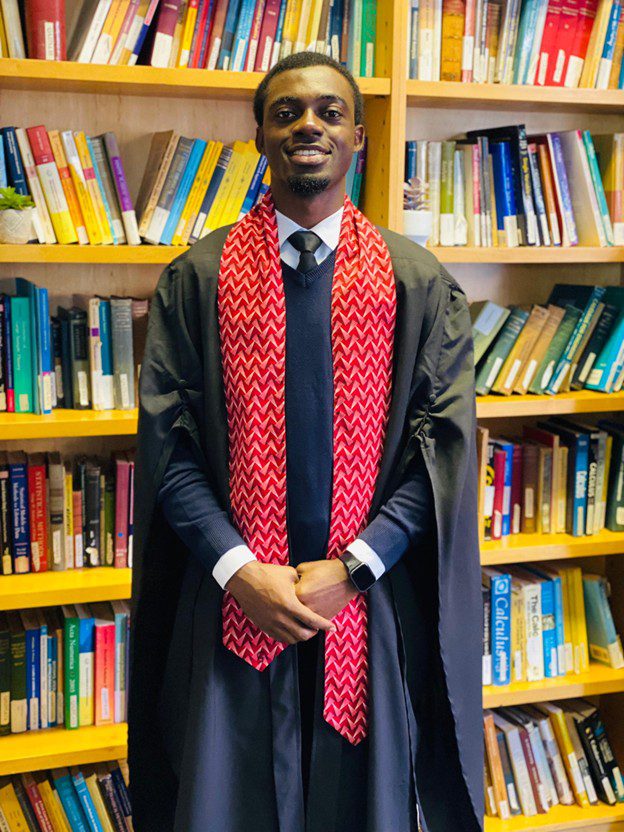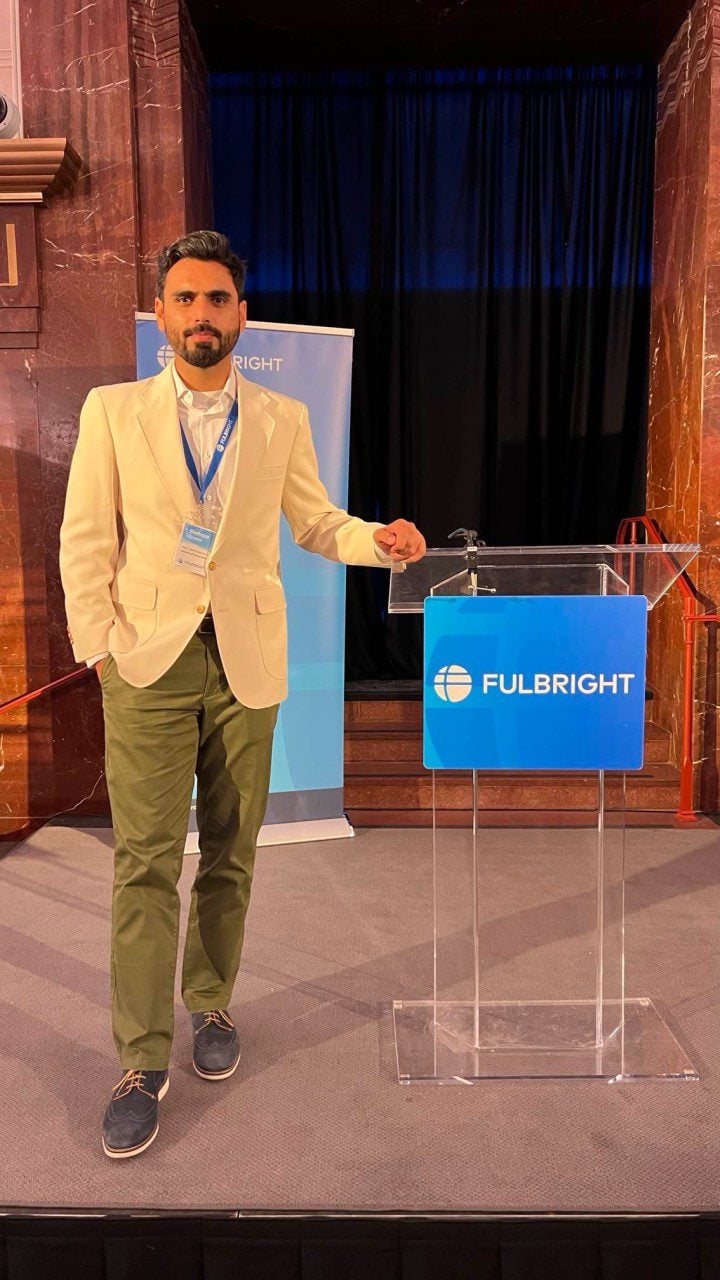How a Czech Social Sciences Graduate Earned the France Excellence Eiffel Scholarship to Pursue a Master’s in Contemporary Societies at Université Paris Cité
University: Université Paris Cité
Degree: Master’s in Sociétés Contemporaines: sociologie, politique, culture
Previous Education: BA in French Linguistics and Literature – Masaryk University
Scholarship: France Excellence Eiffel Scholarship – Fully Funded
Other Offered Scholarships (if any): France Excellence Europa Scholarship
Social Media
LinkedIn: linkedin.com/in/amalie-kolegar/

The Journey
My name is Amalie Kolegar, and I am a recent Master’s graduate in the social sciences from Université Paris Cité. I grew up in Brno, the Czech Republic’s second largest city, attending a grammar school focused on foreign languages and the social sciences, and through the peripeties of the Covid period, pursued a bachelor’s degree in French linguistics at the local university.
My Master’s program, Sociétés Contemporaines: sociologie, politique, culture (Contemporary Societies: sociology, politics, culture) is a two-year, multidisciplinary program in the social sciences and humanities taught in French. Courses are mainly structured around political sociology, but philosophy or cultural studies are also present. While it prepares students for research and careers out of academia alike, all students must submit two Master’s theses (one each year) anchored in rigorous, independently led empirical research.
I chose this Master’s for several reasons. Firstly, coming from a bachelor’s where I mostly focused on applied linguistics and language in different social contexts, I felt that an interdisciplinary approach to social phenomena was right for me. Secondly, as my ultimate goal – at least at the time – was to pursue a career in academia, I liked the program’s emphasis on student-led research. Thirdly, the university’s location in the center of Paris was an opportunity to attend many scientific conferences, as France’s university system is quite centralised.
France Excellence Eiffel Scholarship Details
I received the France Excellence Eiffel Scholarship awarded by France’s Foreign Affairs Ministry to excellent students with leadership potential. While the main benefit for the scholarship holders are the monthly grants (1.188 euros during my time, from September 2023 to August 2025), other services provided by Campus France – France’s agency for Foreign Students – are also included: a reimbursement for an economy plane ticket to and from France (and the transport within France if necessary), help with finding cheap accommodation (generally in state-run student residences), insurance and even cheap trips around France. I also know that this scholarship is especially useful for students from countries where getting a visa to France and a residence permit upon arrival is difficult, but as a Czech citizen, I do not have any experience with this, as I did not need any of these documents.
Were You Offered any Other Scholarships?
A few weeks after being awarded the France Excellence Eiffel, I also learned that I was selected for the France Excellence Europa, a newer scholarship scheme run by France’s Foreign Affairs Ministry and targeted at academically excelling European Students. The process of selection was quite similar from my point of view, but while for Eiffel, the first round of selection is done by universities and the second one by a committee selected by the Ministry, for France Excellence Europa, the first round of selection is done by French embassies, at the country level.
Since you can only accept one of these scholarships, I decided to give up the France Excellence Europa for the Eiffel, a well-known and respected scholarship program with a long tradition.
Educational Background
After my final high school exams (Maturita) at a Czech Grammar School, my initial plan was to study social sciences in Brussels. Because of COVID and other problems, however, I ended up not being able to go after the treatment of my administrative documents was delayed. I therefore decided to attend Masaryk University, where I joined the French linguistics and literature program, which I had applied for to verify my level of French, which I had been teaching myself up until that point, through the entry-level exams. I knew very quickly that linguistics was not my ultimate passion, and I didn’t find the literature courses very interesting. Rather than trying to change my program the following year – effectively prolonging my bachelor’s studies – I decided to stick through it and finish this degree.
As I felt the program was quite light, I decided to finish it in two years instead of the usual three. I therefore had double the coursework during a significant part of my degree, yet managed to get excellent grades: I got an A (best mark possible, 90-100 % of correct answers) in all of my subjects! This put me in the position of valedictorian, which ended up being important for the scholarships, as in France, it is much more about how your results compare to the results of the other students in your program than their value on its own.
Besides this, what helped me get the university’s endorsement for my application was the elective subjects I chose throughout my degree, which were mainly oriented towards the role of language in social phenomena, applied linguistics, and data analysis. While I often felt a sense of purposelessness in my bachelor’s degree, I feel like it allowed me to get the grades needed for the scholarships, all the while equipping me with bonus knowledge which I was quick to apply in my Master’s! I hope this can be a message of encouragement for students who do not feel academically fulfilled in their undergraduate degree.
How Did You Prepare to Apply to Université Paris Cité?
As I was deciding whether to pursue a different bachelor’s degree or to stick it out and search for good Master’s options, I decided to contact Campus France’s Czech office. I chose to contact France first as I spoke French and was familiar with the country. Besides, I had heard about the Eiffel before and was curious about all of the possibilities. I ended up having a call with one of their employees, who explained to me that while funding options for undergrad international students were limited to nonexistent, prospective master’s students could apply for Eiffel, and in my case, also for France Excellence Europa. As I do not come from a wealthy family, I decided to apply for the Master-level scholarships the following year.
Finding my Master’s degree was much more difficult, as I was not very knowledgeable about the different universities in France or even the higher education system in general. While nowadays, prospective candidates can search for public universities’ programs on a website called MonMaster, back then, this website did not exist, and so I had to go through all of the institutional websites individually before deciding that this Master’s felt like a good choice, combining my quest for interdisciplinarity and a political science component, necessary for the grant (as only certain disciplines are eligible). If I were to redo this, however, I would have considered other institutions than just public universities. Indeed, the French system is composed of public universities and institutions called grandes écoles, some of which are regarded as immensely prestigious. If I had known this at the time, I perhaps would have tried to apply to one of these institutions.
Did You Take Any Standardized Tests? If So, How Did You Prepare for Them?
While I did not take any of the standardized tests mentioned, I included my language certificates in my application – my C1 French Certificate (DALF) and my C1 English certificate (Cambridge Advanced, formerly CAE).
How Did You Prepare to Apply for the Scholarship?
In September 2022, I set up another call with the Czech office of Campus France to understand the selection process for the two scholarships I ended up applying for, France Excellence Eiffel and France Excellence Europa. A different employee explained the processes in detail, all the while warning me about the highly competitive nature of these programs.
I then got all my documents ready. Besides scanning my passport and getting my grades’ transcripts ready in English, I also had to contact the faculty to obtain a document that confirmed my rank as valedictorian. As mentioned earlier, this document is crucial for securing the grant, and while it is formally optional, I really recommend that every applicant include it in their application. I also asked my bachelor thesis supervisor for a recommendation letter and wrote a motivation letter stating the arguments for granting me the scholarship – my past accomplishments, but also why awarding me the scholarship was crucial for my career.
When applying for the Eiffel scholarship, it is important to check the specific dates chosen by the university or institution to which you are applying, as they are free to set their own deadlines for the university-level preselection. In my case, while Campus France explained that universities can accept applications up until the end of December, Université Paris Cité had its date set in the middle of November!
How Does the Université Paris Cité Support International Students?
Université Paris Cité has many foreign students and organizes welcome desks and different schemes to boost their orientation in France’s administrative system. However, as I spoke French and was exempt from many of the administrative tasks thanks to my European citizenship, I did not really participate in any of these programs, preferring to focus on academics and on building relationships organically.
Are Your Classes Conducted in English or French?
Since the program was in French, most of my classes were in French. We had one English-language class each semester.
Would Potential Students Have Any Problems Academically, Not Knowing French?
Since my Master’s was in French, not speaking French would be difficult. My institution hosts other programs for which students have received this scholarship, in economics and in bioengineering, for example, and students in these programs, whom I have gotten to know, have told me everything was going smoothly for them in their programs. I can imagine, however, that administrative tasks, especially for non-European students (residence permit, etc.), are hard to deal with without a good knowledge of French, as even in Paris, English is not widely spoken.
What Do You Think Made Your Application Stand Out?
While it is difficult for me to assess my own application, some of the important elements were pointed out to me by a member of the French embassy, where Czech scholarship recipients were invited for a reception in June 2023. I was told that my cover letter was very well-written and a perfect mix of professional and personal, and that the way I painted a clear picture of the necessity of the scholarships in my career aspirations was especially convincing. I also think that my grades played a huge part. Finally, and this is a personal assumption, I find that my ability to paint my interdisciplinary journey – from linguistics to social sciences – as one that was coherent and made my profile a unique one also helped make an impact. I would therefore strongly advise candidates to think about the ways in which the perceived incoherences in their academic and early-career journey, pauses in studies, working while studying, changing disciplines, can make them stand out not only as good students, but also as future leaders with a potential to make an impact on the world, and therefore serve as examples of the ways in which their chosen scholarship contributes to international society.
What Would You Have Done Differently if You Were Going Through the Process Again?
As I said earlier, I would have gotten to know the French system more and perhaps would have tried to contact students from the different Master’s I had (and would have had) selected on LinkedIn to see what the Master’s were about and what their experiences were. In terms of the application itself, I do not think there is anything I regret, as I got two out of the two scholarships I applied for.
What Advice Would You Give Those Looking to Apply for a Similar Scholarship?
Besides checking the deadlines and the formal requirements for the documents for the application, I would like to underscore the need for trusting the process and not losing hope. I remember that in the weeks before receiving the results for the Eiffel program, I found a document that showed the characteristics of the scholarship’s recipients based on their nationality and their discipline of study. According to this information, being a European student in the social sciences made me a very unlikely recipient, as both characteristics were attributed to a low number of recipients. I felt hopeless and gave up on ever obtaining this scholarship, and yet a few weeks later, I got an e-mail congratulating me on being a successful recipient and future Eiffel scholar.
Want to submit your
scholarship journey?
Submit Your Story Here!
More Scholarship Recipients

My name is Vania Estrellita Soegiarto, and I am from Indonesia. I pursued a Finance MBA at KAIST Business School in South Ko .... Read more

Hello, I’m Toyeeb Olamilekan Abubakar from Nigeria. I earned a Bachelor of Science degree in Statistics from the Universit .... Read more

My name is Shehryar Jafar, and I’m from Karachi, Pakistan. I’m currently a PhD student in Electrical Engineering at the .... Read more

Leave A Comment